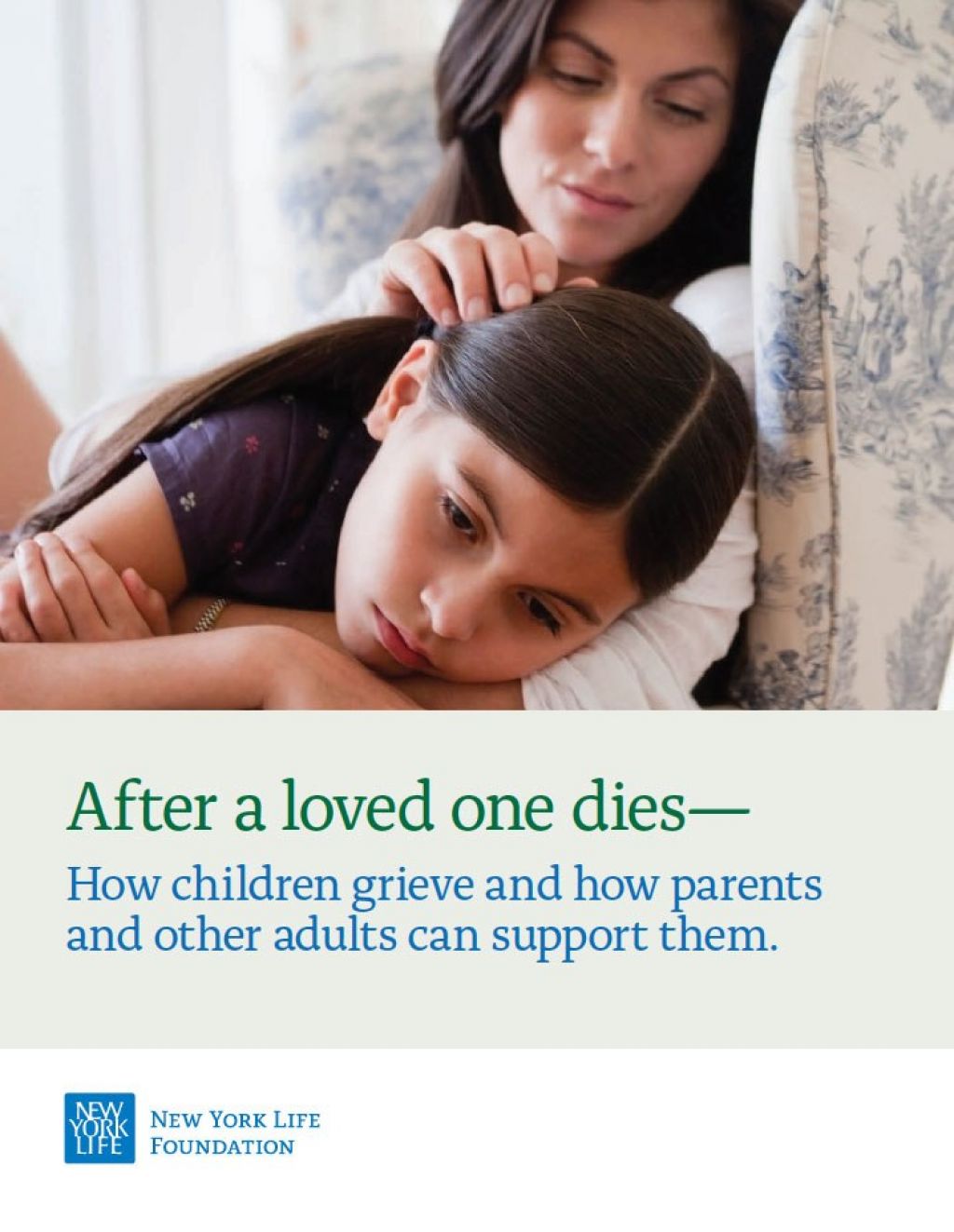Kids grieve differently than adults
Helping children understand death accurately is important in helping them cope with loss as they grow.

Explaining death to children
Be gentle, but direct with the truth about death and dying.
Adults can help children by clearly explaining what happened using the words “death,” “dead,” and “died.” Trying to soften the language, such as “they are no longer with us” leaves many children with lingering questions.
Children may only understand part of the explanation.
Many adults expect children to grieve the way adults would, and mistakenly think that kids are “fine” if they don’t immediately show their emotions. It takes time for all of us to understand and process what death means. Asking the child to explain what they understand has happened is a good way to see where more explanation might be needed. The child might be afraid to ask for clarification, so it is best if the adult asks to see what the child understands.
Check-in with the child over time.
A child’s understanding of grief grows and matures as they learn and grow. Realize that their grief may surface many times throughout their childhood and adolescence as they begin to understand different aspects of death and loss. Important milestones for the child may also trigger their grief, as they wish the loved one was there to experience it with them.
Grief experts share their insight regarding children’s grief:
Oftentimes what we find is that parents tend to assume that their child is grieving in the exact same way that they are, but from the work that we've done, we know that that's actually not true. Oftentimes, children are grieving in a very different way, and it's very hard for parents to get inside the head of their child and really understand what is it they're thinking.
Younger children tend to have higher levels of separation distress, so, yearning and longing for the person who died, and really missing them, and as you can imagine, young children feel that even more powerfully, because they were often dependent on the person who died.
Adolescents tend to have higher levels of identity distress or existential distress where they may feel like, why did this happen to me? What is my future going to look like now that the person isn't there? So, they tend to be more future-oriented than younger children and more concerned about, what is my future going to look like now that I don't have this person in my life?
I think as adults we can do a lot of over thinking, a lot of over explaining even, around what it is they need to know. And really for them, it's simple. What happened? How can we remember this person? How can I tell you how much this person meant to me? And, can I come to you for help? Are you a safe person as well in this? Are we going to go through this together? Those, I think are real important to cut to the chase around, so that kids can feel supported and your family can grow in the face of a loss.
When children have questions about the circumstances of the death, often what we recommend is that we really let the child guide those questions. So, for example, a child may have questions about exactly how the person died. So, often, we want to recommend to parents that they are factual, that they keep things as simple and straightforward as possible, not adding too much detail unless the child asked for it. And, we know that usually that is what the children need is really to be able to have those facts, but not have information overload where it's too much to comprehend at once.
So, oftentimes, parents err on the side of being too cautious and too careful about not wanting to even raise the issue of the person who died. And, we know that it actually helps kids to be able to have their parents talk openly about the death. So, one thing we say is that it's important to be able to talk and communicate openly about the death itself and the person who died.
We also know that sometimes, parents can provide too much information, and so, it's really a matter of striking that happy medium of really meeting the child where the child is at. So, for example, oftentimes a parent might say to a child, "I know that it's really hard. We all miss Daddy very much. I'm here for you whenever you need me or whenever you want to talk about it," and that really opens the doorway to communication. It doesn't put pressure on the child to talk about it, but it helps them to know that the parent is there and ready whenever they're ready to talk about it.